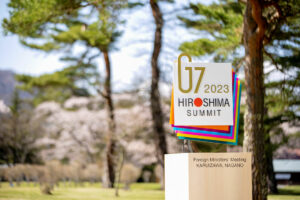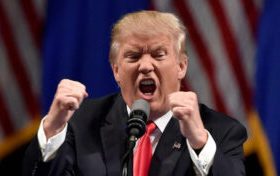BEIJING/TOKYO – State-backed Chinese mouthpiece Global Times called the G7 an “anti-China workshop” on Monday, after Beijing summoned Japan’s envoy and berated Britain in a fiery response to statements issued at the weekend G7 summit in Hiroshima.
A joint communique issued on Saturday singled out China on issues ranging from Taiwan and maritime claims, to economic coercion and human rights, underscoring the tensions between Beijing and the group of rich countries which includes the United States.
“The US is pushing hard to weave an anti-China net in the Western world,” Global Times said in an editorial on Monday titled ‘G7 has descended into an anti-China workshop’.
“This is not just a matter of brutal interference in China‘s internal affairs and smearing China, but also an undisguised urge for confrontation between the camps”.
Beijing’s foreign ministry said it firmly opposed the G7 statement and late Sunday said it had summoned Japan’s ambassador to China as part of its protest to the summit host.
Russia, a close ally of China that was also called out in the G7 statement over its invasion of Ukraine, said the summit was an “incubator” for anti-Russian and anti-Chinese hysteria.
Separately, China‘s embassy in Britain urged London to stop slandering China on Sunday, after British Prime Minister Rishi Sunak said Beijing represents the world’s greatest challenge to security and prosperity.
Despite Beijing’s pointed reaction, U.S. President Joe Biden said he expected a thaw in frosty relations with China “very shortly”. The Group of Seven (G7) also includes Canada, France, Germany and Italy.
JAPAN BACKLASH
Chinese Vice Foreign Minister Sun Weidong summoned the Japanese ambassador to register protests over “hype around China-related issues”, a ministry statement late on Sunday said.
Sun said Japan collaborated with the other countries at the G7 summit “in activities and joint declarations … to smear and attack China, grossly interfering in China‘s internal affairs, violating the basic principles of international law and the spirit of the four political documents between China and Japan,” referring to the China-Japan Joint Statement of 1972.
He said Japan’s actions were detrimental to China‘s sovereignty, security and development interests, and that China is “strongly dissatisfied and firmly opposes” them.
“Japan should correct its understanding of China, grasp strategic autonomy, adhere to the principles of the four political documents between China and Japan, and truly promote the stable development of bilateral relations with a constructive attitude,” Sun said.
Hideo Tarumi, Japanese ambassador to China, rebutted that it is “natural” for the G7 to refer to issues of common concern as it has done in the past and will continue to do so in the future as long as China does not change its behavior, according to a readout.
“China should first take positive steps to address those issues of concerns if China demands not to refer to them,” Tarumi told Sun, according to the readout.
Japan’s Chief Cabinet Secretary Hirokazu Matsuno said during Monday morning briefing that the country’s policy toward China has been consistent that it will insist on matters that is needed and urge responsible behavior, while take steps to address concerns and cooperate on common issues. – Reuters







